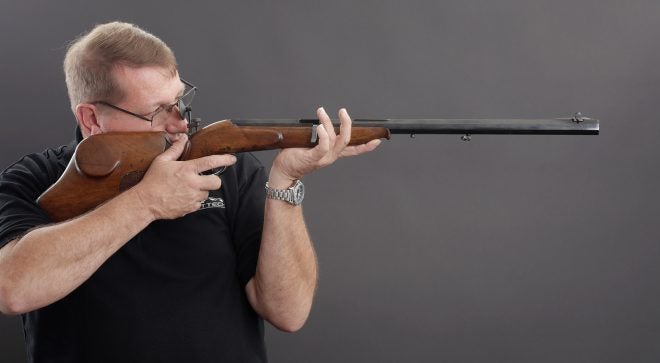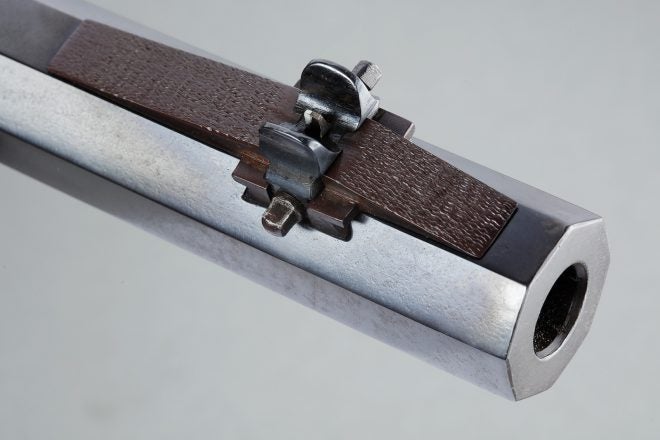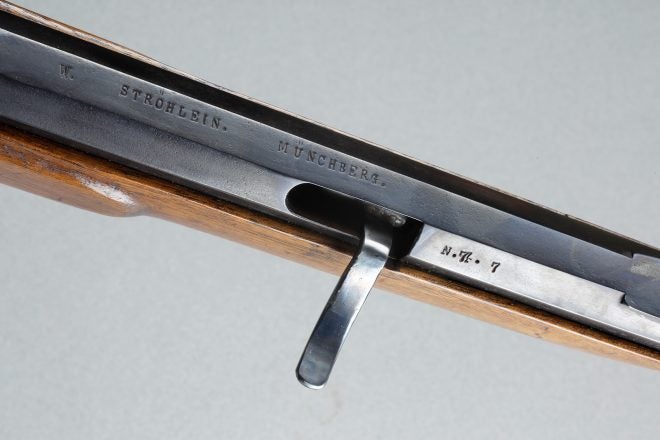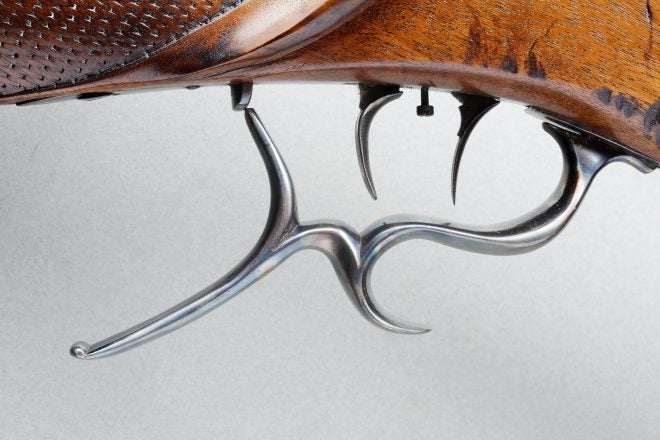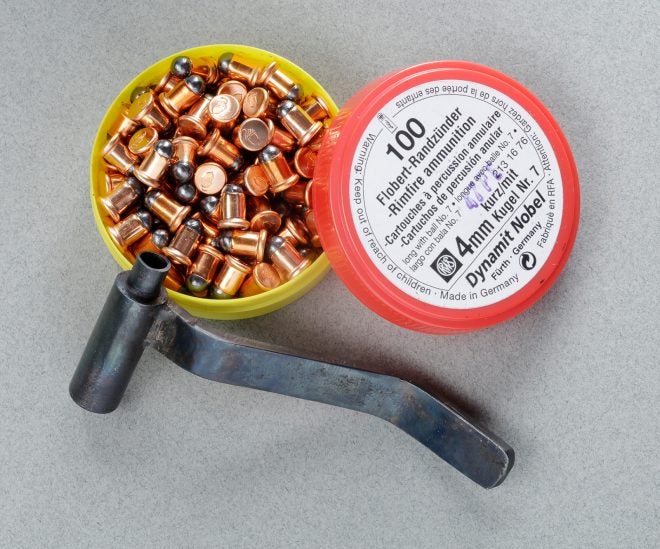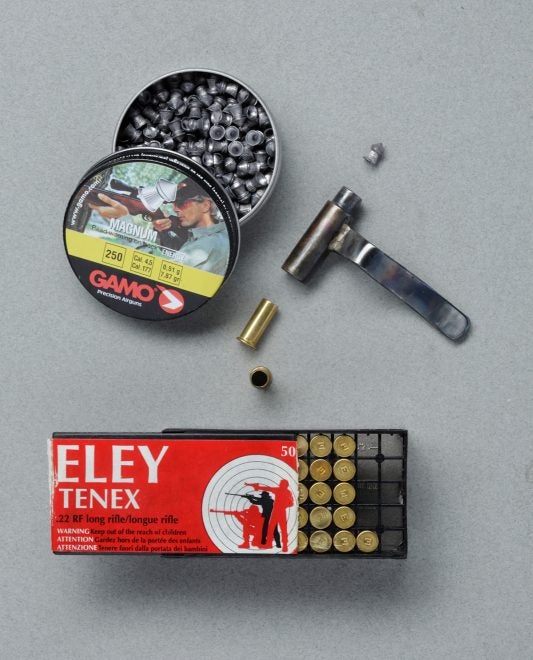Before Olympic Air Guns — Zimmerstutzen.
Oleg Volk 05.14.19

“Bullet is a Fool, Bayonet’s a Bully” said late 18th century Field Marshal Alexandr Suvorov. He wasn’t far off the truth — for the day. Beyond the poor accuracy and low rate of fire of the flintlock muskets, beyond the danger each shot posed to the shooter (the wigs of the time were in part to protect the hair from burning powder flakes) and the frequent misfires, there was the issue of training. Lead and gunpowder were expensive, so many armies restricted live fire practice to fewer than ten shots annually. Up until the 1830s, marksmanship training was limited to a few jaeger units.
Around the time most armies began conversion to caplock rifles, the issue of infantry competency arose. Switzerland, rather poor at the time, used crossbows fitted with range-adjustable rifle sights. By the 1850s, more and more countries started using some cost-saving methods of getting live fire practice, beginning with sub-caliber inserts for naval artillery and then onto sub-caliber trainers for infantry. A barrel insert with a percussion cap on one end and a BB on the other came into use. In Germany, where firearm marksmanship competitions go back to the early 16th century or further, sub-caliber rifles made by converting older flintlocks or percussion guns to gallery rifles served a double duty of military trainers and arcade or pub entertainment.
In addition to percussion caps and BBs, rimfire BB caps — much the same thing but assembled into a single unit — also became popular. Come of the guns, like the example here, could use both.
This rifle fires a 4mm spherical projectile down a much shorter tube to reduce friction. This tube is countersunk in the longer, wider barrel and so produces negligible report. To reach the cartridge, the firing pins can be up to half of the length of the barrel. The barrels often have up to a dozen lands and grooves, predating Marlin’s Microgroove by a few decades. At short, windless indoor ranges, the accuracy can be excellent. Set triggers and good balance of the guns helps too. Single hold groups at 15 yards aren’t rare.
Calibers of such rifles vary and can reach 4.5mm at the largest. Although no gunpowder is used, velocity ranges from 800 to 1000fps!
Sometimes, factory made ammunition isn’t available, so improvised substitute was made with a different bolt and caps plus 4.5mm air gun pellets that swage down the bore. This example uses Eley 22LR cartridges with bullet and powder removed as the driver for an airgun pellet.

